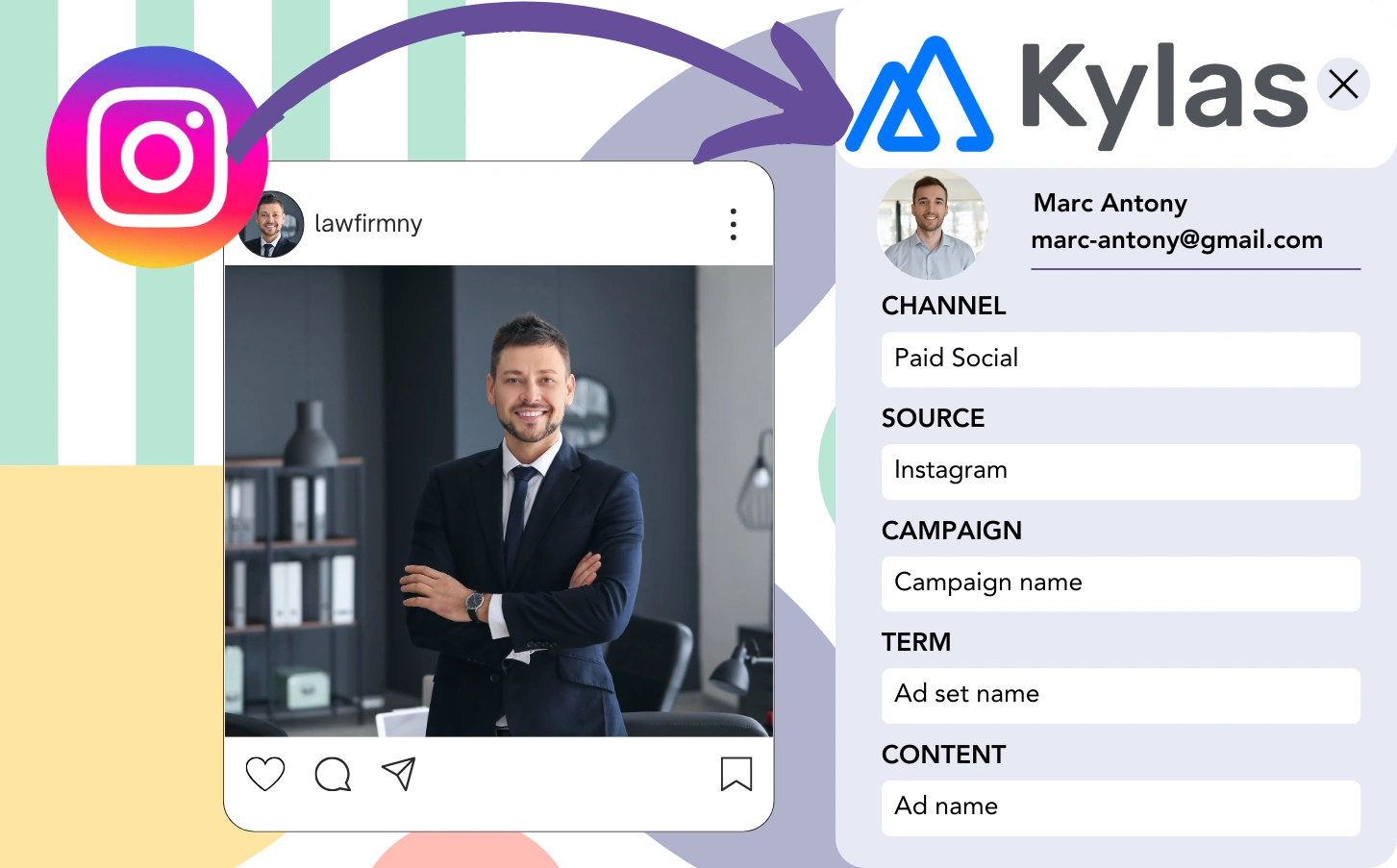When you bring leads from Instagram into Kylas CRM, you can’t assign a specific ad to each lead. Moreover, when these leads become customers, tracing them back to a particular Instagram campaign is out of reach.
Without tracking capabilities, assessing the success of Instagram ads is challenging, making it hard to see which ads produce leads and customers. This may lead to ad investments without clarity on their impact.
Luckily, an effective method allows you to connect each lead with the exact Instagram campaign, ad set, and ad where it started.
Let’s work through the process in a step-by-step approach!
How to Track Instagram Ads in Kylas CRM
Step 1: Add Leadsources in the head tag of your website

Step 2: Add the UTM parameters to your Instagram ads

To record Instagram ad data, include UTM parameters in your ad URL, specifying the campaign, ad set, and ad information. Follow this structure:
UTM_medium=paidsocialUTM_source=instagramUTM_campaign=campaign-nameUTM_term=ad-set-nameUTM_content=ad-name
The final URL is expected to follow this structure:
https://www.yourdomain.com/?UTM_medium=paidsocial&UTM_source=instagram&UTM_campaign=campaign-name&UTM_term=ad-set-name&UTM_content=ad-nameImportant: Leadsources compiles all lead source data, irrespective of whether UTM parameters are in place, ensuring full tracking for every lead.
Step 3: Add the hidden fields in your form
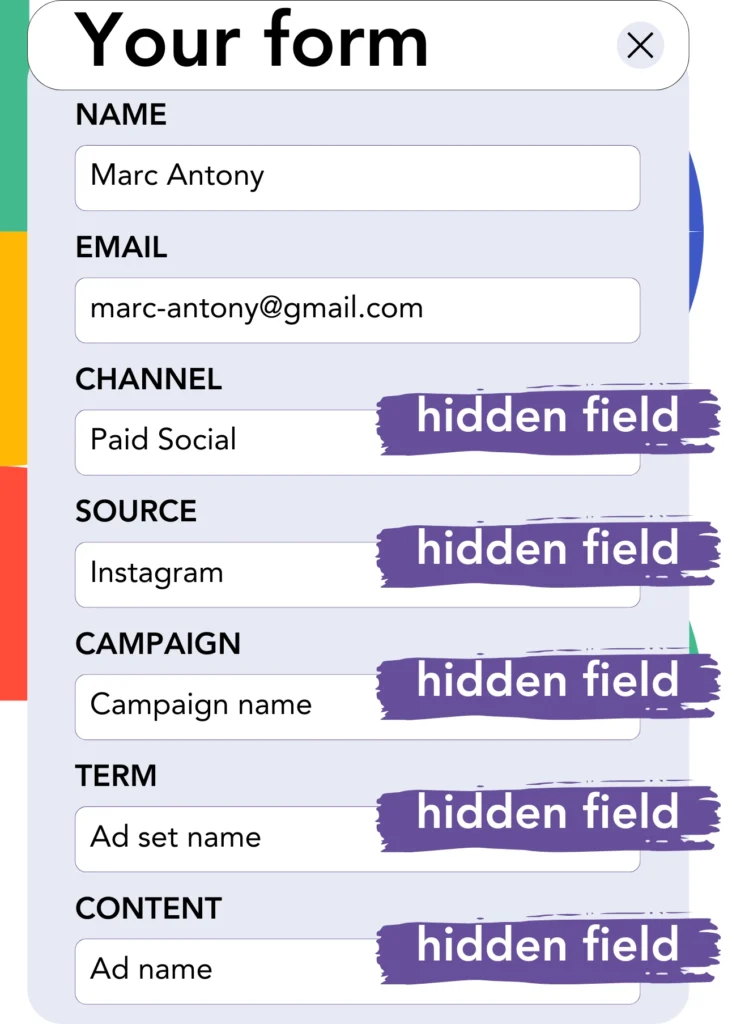
While users may not notice hidden fields in forms, these fields are still capable of collecting and storing the submitted data.
Hidden fields in your form serve as storage for lead source information collected by Leadsources. When a lead completes the form, these fields are populated with Instagram ads data automatically.
Leadsources is designed for use with all prominent form builders. For complete instructions on how to add hidden fields to your form, please consult this guide.
Step 4: Capture the Instagram ads data in Kylas CRM
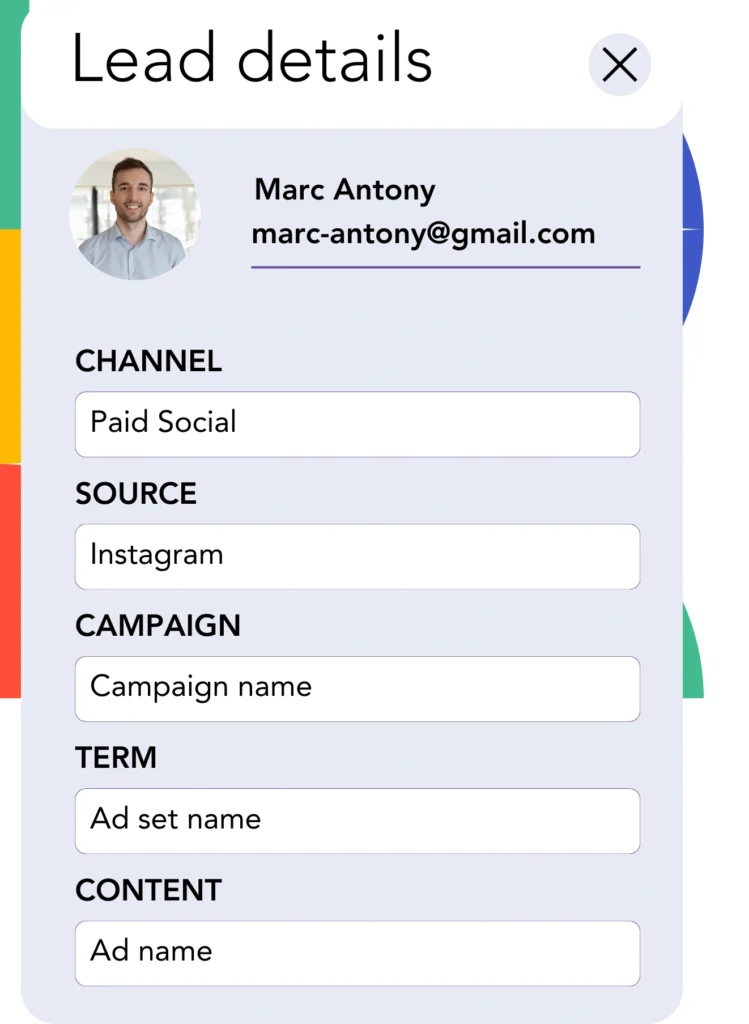
When users select your ads and navigate to your website, Leadsources extracts details from the Instagram campaign, ad set, ad data, and more.
Instagram ads data is received in the hidden fields of your form through Leadsources.
Consequently, when you submit the form, you can view the Instagram ad data and lead information in Kylas CRM (this requires connecting your form to Kylas CRM).
How does Leadsources work?
Whenever someone visits your site, Leadsources retrieves Instagram ad data and places it in the hidden fields of your form. Once submitted, this data is sent to Kylas CRM, along with the lead information you’ve captured (like name and email).
Leadsources notes down all the lead source data associated with every lead:
| Lead source data | Fetched automatically |
| Channel | ✅ |
| Source | ✅ |
| Campaign | ✅ OR use UTM_campaign |
| Content | UTM_content parameter is required |
| Term | UTM_term parameter is required |
| Landing page | ✅ |
| Landing page subfolder | ✅ |
The table above indicates that in scenarios where UTM parameters are ineffective—like organic sources such as Google search or Instagram bio links—Leadsources efficiently retrieves certain lead source data:
- Channel
- Source
- Campaign
- Landing page
- Landing page subfolder
Unlike other services, Leadsources effectively tracks lead sources across all types of marketing channels, whether they are organic or paid.
Performance reports: Lead, sales, and revenue by source
Using Kylas CRM to monitor Instagram ads data enables you to generate various performance reports, like:
- Leads, sales, and revenue by channel
- Leads, sales, and revenue by source
- Leads, sales, and revenue by campaign (aka. Instagram campaign)
- Leads, sales, and revenue by term (aka. Instagram ad set)
- Leads, sales, and revenue by content (aka. Instagram ad)
This enables you to reassign your Instagram budget based on the campaigns, ad sets, and ads that generate the highest leads, sales, and revenue.
Let’s discuss the various reports you can generate:
1. Lead source reports
Formulate performance reports that show the number of leads traced back to:
- Channel
- Source
- Campaign (aka. Instagram campaign)
- Term (aka. Instagram ad set)
- Content (aka. Instagram ad)
- Landing page
- Landing page subfolder
Example #1: Leads by channel
This report provides clarity on which channel leads to the greatest number of leads.
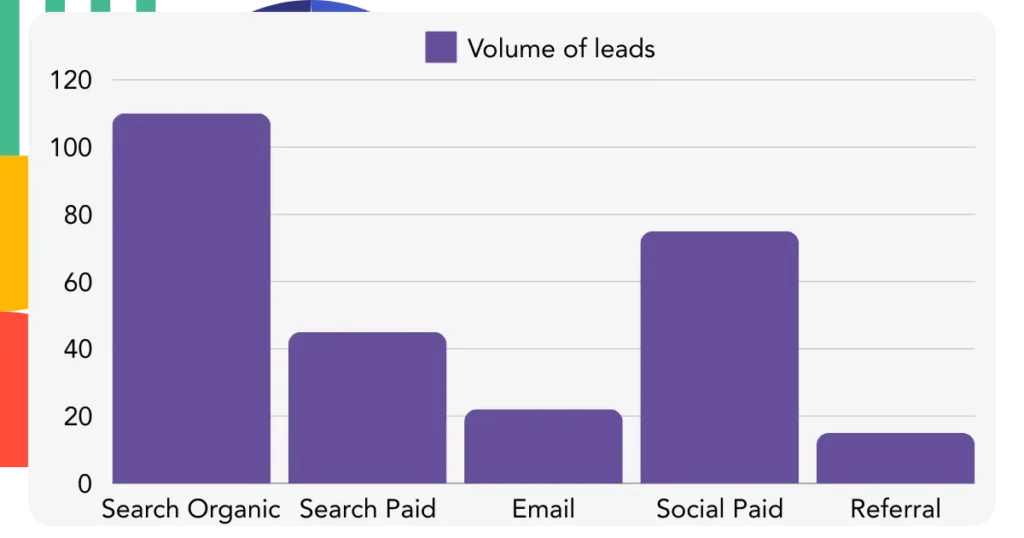
Example #2: Leads by Instagram campaign
Now you have the ability to concentrate on a particular lead source (e.g., Instagram) and quantify how many leads are generated by each Instagram campaign.
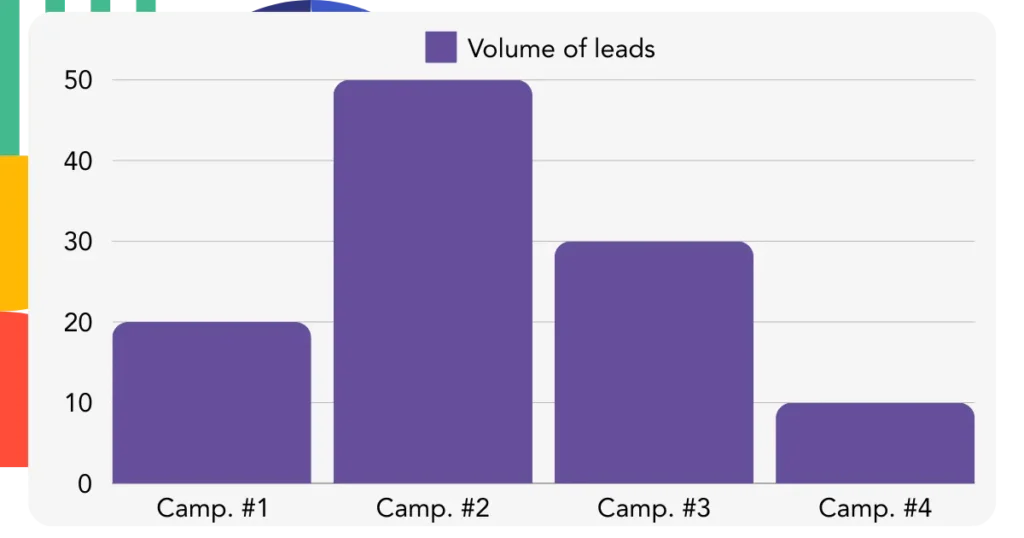
Example #3: Leads by Instagram ad
Once you find the Instagram campaign that results in the most leads, you can analyze which particular ad group or ad is contributing to that lead generation.
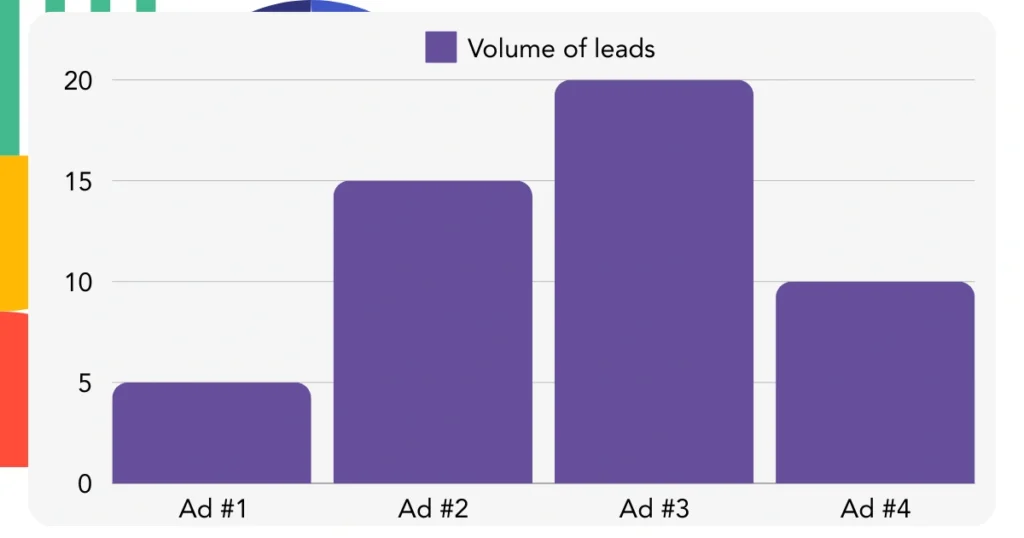
2. Sales and revenue source reports
Once we ascertain the Instagram campaign, ad set, and ad driving our leads, we must determine if these leads are turning into sales and revenue.
To assist in this process, integrate your leads with a CRM like Kylas CRM. This connection facilitates the tracking of sales and revenue across multiple channels, sources, Instagram campaigns, ad sets, ads, landing pages, and their respective subfolders.
This data enables you to improve your Instagram ad strategy, concentrating on the channels, sources, campaigns, ad sets, and ads that contribute the most to sales and revenue.
It’s possible to develop different sales and revenue reports, such as:
- Sales and revenue by channel
- Sales and revenue by source
- Sales and revenue by campaign
- Sales and revenue by term (e.g., Instagram ad set)
- Sales and revenue by content (e.g., Instagram ad)
- Sales and revenue by landing page
- Sales and revenue by landing page subfolder
Example Scenario:
| Channel | Search Paid | Social Paid |
|---|---|---|
| Leads | 50 | 75 |
| Sales | 5 | 6 |
| Average Order Value | $150 | $100 |
| Revenue | $750 | $600 |
After deploying ads on Google and Instagram, the first “Leads by Channel” report indicated that Social Paid ads (Instagram) were more effective in generating leads than Search Paid ads.
Nevertheless, after investigating the sales and revenue data in Kylas CRM, you found that the Search Paid channel yielded more revenue with fewer leads than the Social Paid channel. Therefore, you decided to adjust your budget to provide more support to the Search Paid channel.
LeadSources tracks the source of each lead in Kylas CRM, whether they come from ads, organic search, social, email, etc. and syncs that data with each submission. See the full breakdown on the lead source in Kylas CRM page.

